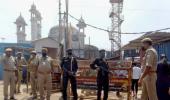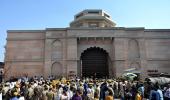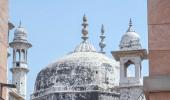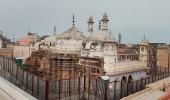Another plea challenging the Constitutional validity of certain sections of the Places of Worship (Special Provisions) Act 1991 was filed in the Supreme Court on Saturday stating that the said Act violates the principles of secularism.
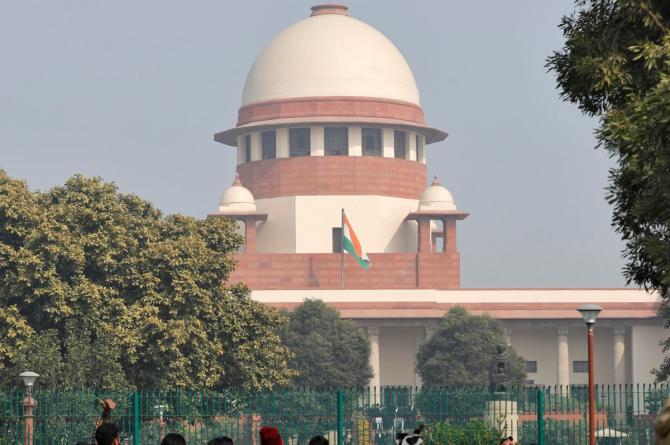
The plea, filed by a religious guru based in Mathura, Devkinandan Thakur, has challenged the constitutional validity of Sections 2, 3, and 4 of the Places of Worship (Special Provisions) Act 1991, stating that it offends Articles 14, 15, 21, 25, 26, 29 of the Indian constitution and violates the principles of secularism and the rule of law, which is an integral part of the Preamble and basic structure of the Constitution.
'Hindus are fighting for the restoration of the birthplace of Lord Krishna for hundreds of years with peaceful public agitation, but by enacting the Act, the Centre has excluded the birthplace of Lord Ram at Ayodhya but not the birthplace of Lord Krishna in Mathura, though both are the incarnations of Lord Vishnu-the creator,' the petitioner said.
Advocate Ashwini Upadhyay, Rudra Vikram, residents of Varanasi, and Swami Jeetendranand Saraswati, a religious leader, among others have already filed a plea in the apex court against the Act.
The pleas read that Sections 2, 3, and 4 of the Act have taken away the right to approach the court and thus the Right to Judicial Remedy has been closed.
Section 3 of the Act bars the conversion of places of worship, by stating, 'No person shall convert any place of worship of any religious denomination or any section thereof into a place of worship of a different section of the same religious denomination or of a different religious denomination or any section thereof.'
Section 4 bars filing of any suit or initiating any other legal proceeding for the conversion of the religious character of any place of worship, as existing on August 15, 1947.
'The Places of Worship Act 1991 is void and unconstitutional for many reasons,' the plea said, adding that it offends the right of Hindus, Jains, Buddhists, and Sikhs to pray, profess, practice and prorogate religion (Article 25).
'The Act infringes on the rights of Hindus, Jains, Buddhists, and Sikhs to manage, maintain and administer the places of worship and pilgrimage (Article 26),' it added.
Adding further, it read that the Act deprives Hindus, Jains, Buddhists, and Sikhs from owning/acquiring religious properties belonging to the deity (misappropriated by other communities).
'It also takes away the right of judicial remedy of Hindus, Jains, Buddhists, Sikhs to take back their places of worship and pilgrimage and the property which belongs to the deity,' it read.
According to the plea, the Act further deprives Hindus, Jains, Buddhists, and Sikhs to take back their places of worship and pilgrimage connected with their cultural heritage (Article 29) and also restricts Hindus, Jains, Buddhists, and Sikhs to restore their possession of places of worship and pilgrimage but allows Muslims to claim under the Section 107, Waqf Act.
'The Act legalises barbarian acts of invaders. It violates the doctrine of Hindu law that 'Temple property is never lost even if enjoyed by strangers for years and even the king cannot take away property as the deity is the embodiment of God and is juristic person, represents 'Infinite the timeless' and cannot be confined by the shackles of time,' one of the petitions read.
'It is respectfully submitted that the Central Government by making impugned provision (Places of Worship Act 1991) in the year of 1991 has created arbitrary irrational retrospective cutoff date and declared that the character of places of worship and pilgrimage shall be maintained as it was on August 15, 1947, and no suit or proceeding shall lie in the court in respect of the dispute against encroachment done by barbaric fundamentalist invaders and such proceeding shall stand abated,' the PILs stated.
The pleas sought direction to declare that Section 2, 3 and 4 of the Places of Worship (Special Provisions) Act, 1991 'void and unconstitutional' for being violative of Articles 14, 15, 21, 25, 26, 29 of the Constitution of India in so far as it legalises 'the ancient historical and puranic places of worship and pilgrimage', illegally occupied by foreign invaders.
